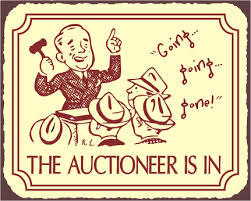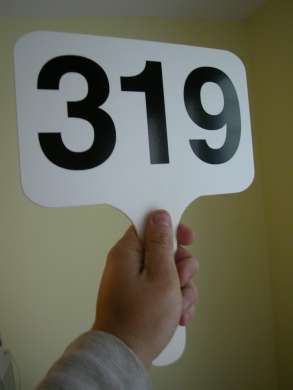Related Topics
Sights to See: The Outer Ring
There are many interesting places to visit in the exurban ring beyond Philadelphia, linked to the city by history rather than commerce.
Computers, Digital Cameras, and Cellphones
Much of the early development of the electronic computer took place in Philadelphia. We lost the lead, but it might return.
Philadelphia Economics
economics
Montgomery and Bucks Counties
The Philadelphia metropolitan region has five Pennsylvania counties, four New Jersey counties, one northern county in the state of Delaware. Here are the four Pennsylvania suburban ones.
Right Angle Club 2009
The 2009 proceedings of the Right Angle Club of Philadelphia, beginning with the farewell address of the outgoing president, John W. Nixon, and sadly concluding with memorials to two departed members, Fred Etherington and Harry Bishop.
Customs, Culture and Traditions (2)
.
Northern Overland Escape Path of the Philadelphia Tories 1 of 1 (16)
 Grievances provoking the American Revolutionary War left many Philadelphians unprovoked. Loyalists often fled to Canada, especially Kingston, Ontario. Decades later the flow of dissidents reversed, Canadian anti-royalists taking refuge south of the border.
Grievances provoking the American Revolutionary War left many Philadelphians unprovoked. Loyalists often fled to Canada, especially Kingston, Ontario. Decades later the flow of dissidents reversed, Canadian anti-royalists taking refuge south of the border.
Country Auction Modernized
Only a decade ago, the Quakertown exit of the Pennsylvania Turnpike made possible a quick trip from the city to the country, letting you off in the cornfields between Sumneytown and Lansdale. Today, the rush hour traffic is as bad as anywhere else, even on the four-lane express highway known as Forty Foot Road. A comfortable two-lane highway would be about forty feet wide, so presumably, the name denotes what was once a modern miracle of a two-lane highway, in this case until quite recently. It's all built up for miles, but almost all the commercial buildings are new. Exurban sprawl has positively lurched across the landscape, making prosperous people rich, and poor people prosperous. It won't be long before the housing subdivisions demand traffic signals to protect the school children, speed limits to reduce the collisions by teenagers, and other things destined to bring high-speed travel to a crawl, all day long. When that happens, it won't be called farm country anymore.

|
| Alderfer Auction Company |
On Fairground Road, where occasionally corn is still growing, a number of large new commercial enterprises have located, among them a moving and storage company with ten or so truck loading platforms in the back. Behind that is another large new building, also with a parking lot for fifty or so cars, the auction house. Different categories come up for auction on different days, so used furniture, for example, comes up every few weeks and has to be stored as things accumulate for the big day. With a moment's thought, you can easily see why the auction is affiliated with or owned by a moving and storage company. As you go through the entrance, you are invited to sign up and identify how you plan to pay, just in case you buy something; the product of this registration is a card with a number in big colored letters. That's your number, your payment arrangement, and soon you will find no one cares anything about you except that number. The auction I was interested in was for used books, one of three or four auctions conducted in different rooms.

|
| Auctioneer |
Nearly a hundred people had numbers for used books, maybe a similar number for antique furniture and paintings. Obviously, one other purpose of the registration process is to create a mailing list of customers interested in various objects, possibly linked to a program which sends out flyers and announcements. Country auctions have always been a source of local entertainment, so non-buying spectators are able to come and watch if they wish. There seemed to be few if any casual sight-seers; just about everybody is a buyer or a potential buyer. Players, as they say.
Most of the customers probably set their alarm clocks for 5 AM or earlier; the auction is centrally located, but most everybody comes from a considerable distance. At 9 AM, very promptly, the auction began, and from his manner, you could tell the auctioneer was anxious to get started. The object for sale had been on display for a day, but most people arrived around 7 AM to examine the goods, which are frequently sold in lots, meaning a box full of thirty or forty books more or less on the same topic. At the stroke of nine, the auctioneer chanting began, "Do I have ten dollars, yeh, ten, ten, ten, five, five, ten, fifteen, twenty, twenty, sold for fifteen. Your number, sir?" Two assistants took down the customer number, and the lot number, and the price; one of the two recorded the transaction in a computer, the other on a list by hand. One gathers the man without a computer was on the look-out for shills, people trying to bid up to the price without getting stuck for a purchase. The auctioneer repeatedly assured the audience that no one but a real bidder was allowed to bid, you owned it, and no excuses about being confused. When he reached he hundredth sale, he stopped for a drink of water, and proudly noted the first hundred sales took thirty-seven minutes. It required four other assistants to fish out the lots next in line, holding them up for confirmation only, since inspecting them at as the distance was out of the question. After each sale, the assistant dumped the prize in the new owner's lap.

|
| Auction Paddle |
And yet entitled to wonder a little. The ordinary run of books thirty or forty years old will sell for between ten and twenty dollars. Books about golf, just about any old book about golf, "go" for about forty dollars. Children's books are about sixty dollars. And, to my great surprise, boxes or albums of old photographs go for over a hundred dollars. A lady next to me excitedly brought an album of old photos back to her seat and thumbed through them. "Are you a dealer?" Yes. "Who buys this stuff?" I don't know, they come to my store and just buy it. Like the Auctioneer, she had a feeling for what the retail price would be, made a calculation, and knew what she could afford to pay wholesale. What the stuff actually represented, why people wanted it, what was a good one and what was a bad one--these people in the trade had very little idea. But they knew very precisely what a fair price, and gradually lowers it until it sells. Fun Lots of fun. When a familiar insider makes a mistake and pays too much, the others laugh heartily at him. Why this funny system works has long been a mystery, but everyone except a socialist readily acknowledges it does work. At least it works better than any known substitute.
Although the ritual of the country auction has been essentially unchanged for the centuries, it is just another transaction system. In the past fifty years, the world economy has been transformed by computerized efficiencies in transaction systems, with vast prosperity resulting from small saving endlessly repeated. Banking and Wall Street have concentrated most of the standardized transaction, in perfectly astounding volume; lots and lots of people have become immensely rich for producing small efficiencies in high volume. Those of us who have not become immensely rich can easily identify trivial innovations which resulted in wealth, and we easily sense the unfairness of old photos worth more than books of poetry. After all, the country auction is still grossly inefficient; the seller pays the auction company 20% of the price, and the buyer pays another 10%. There's 3% for the credit card company and &% for the sales tax. Forty percent of this transaction is going to the middle man, over and over and over again. The goal is to reduce transaction costs to the level of Wall Street, considerably less than one percent, Which still lots of yachts for middlemen.
As you walk out of the country auction, it doesn't take a mathematical genius to multiply thirty percent times the number of transactions, times a guess at the average sales price. No wonder these auction people are so cheerful, so much in love with their work. But two other parties are cheerful, too. That is, the buyer and the willing seller.
Originally published: Tuesday, September 08, 2009; most-recently modified: Wednesday, May 15, 2019